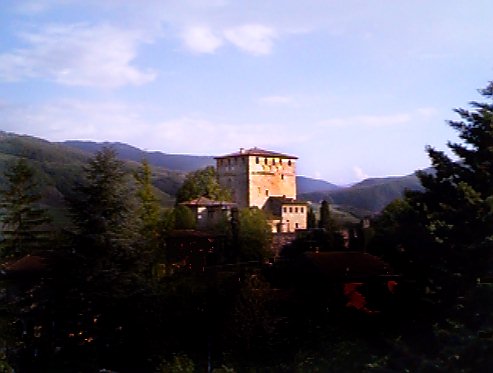
by Daniel Burkley

Hannibal had crossed the Alps into Italy in the late autumn/early winter of 218 BC. Most source suggest that Hannibal started his journey from Spain with 50,000 men. After evading the Romans and pushing through some unfriendly Gallic tribes whilst crossing the Alps probably about half of these were still present. Some of the losses suffered were made up with Gallic troops recruited on the march.
Publius Cornelius Scipio had tried to intercept Hannibal before he reached the Alps, but failed to catch him. Scipio sailed back to Italy and moved to hold a strong position on the Ticino River with 2 legions and some allied Gauls. Here he waited for Tiberius Sempromius Longus to reinforce him with 2 more legions.
After recruiting amongst the Gauls in north Italy, Hannibal advanced down towards Scipio's position. Scipio sent his cavalry and light troops to probe for Hannibal and these were badly beaten by the Carthaginians (probably in an ambush) and Scipio was wounded.
With this setback Scipio abandoned his strong position on the Ticino and retreated to Placentia. Many of the Gallic tribes sided with Hannibal following this and Scipio's Gallic allies started to defect to the Carthaginians. With things therefore going from bad to worse Scipio retreated again to the Trebbia River where he was joined by Sempronius and his 2 legions.
December 218 BC was cold and snowy. Scipio was still recovering from his wounds but Sempronius was spoiling for a fight. Hannibal was aware of this and prepared a plan to take advantage of Sempronius' impetuosity.
Hannibal sent a force of 1,000 infantry and 1,000 cavalry under the command of his younger brother Mago to conceal themselves among the streambeds along the Trebbia and prepare an ambush for the Romans. At dawn, Hannibal sent out the Numidian light cavalry to harass the Roman camp. Meanwhile the rest of the army has breakfast and rubbed themselves down with oil to fortify them against the cold.
Sempronius reacted as expected and hastily mustered his men, allowing them no time to eat. The cavalry set out first to chase the Numidians back across the freezing river, followed by the rest of the army.
Opposing Forces
Some distance beyond the river Hannibal has 8,000 men (most of them light troops) positioned as screen. Behind them was the main battleline of 20,000 African, Spanish and Gallic infantry, with 10,000 cavalry and 37 elephants split between the 2 flanks. Sempronius arranged his 4 legions (approx. 16,000 Romans and 20,000 Italian allies) in the standard Roman 3 line formation, supported with 4,000 cavalry on the flanks (total) and possibly up to 3,000 Gauls on the right.
The Battle Begins
 The light infantry screen
first clashed, but the velites (Roman skirmish infantry) performed poorly and they were
withdrawn. As the Roman legions advanced their cavalry wings were attacked by the
Carthaginian horse, elephants and light infantry. Heavily outnumbered the Roman cavalry
broke and was pursued by the Carthaginian and Numidian cavalry.
The light infantry screen
first clashed, but the velites (Roman skirmish infantry) performed poorly and they were
withdrawn. As the Roman legions advanced their cavalry wings were attacked by the
Carthaginian horse, elephants and light infantry. Heavily outnumbered the Roman cavalry
broke and was pursued by the Carthaginian and Numidian cavalry.
When the main opposing battlelines clashed the Roman flanks were consequently already under pressure from the Carthaginian elephants and light troops (the elephants routing the Roman Gallic allies). The Roman velites drove off the elephants but the Roman centre could not quite overpower the enemy line (although it was starting to buckle in the centre where most of the freshly recruited Gauls were) and the opposing heavy infantry remained locked in a dour hand to hand struggle.
Mago's ambush force now broke form cover and attacked the Romans in the rear. Roman morale already sapped by cold, hunger and fatigue now broke under this fresh onslaught. The Roman wings routed back across the river, many either drowning or being cut down as they fled. Sempronius, with about 10,000 infantry in the centre was cut off from the rest of his army but succeeded in fighting his way to Placentia.
After nightfall Scipio reformed the Roman remnants and made his way to Placentia and Cremona. Roman losses were estimated to be 15,000 - 20,000 men. Hannibal's were far less, mostly Gauls. All but one of the elephants died soon after, probably from wounds and the cold.